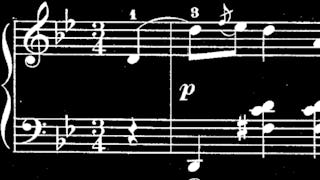Filter by
SubjectRequired
LanguageRequired
The language used throughout the course, in both instruction and assessments.
Learning ProductRequired
LevelRequired
DurationRequired
SkillsRequired
SubtitlesRequired
EducatorRequired
Explore the Music Appreciation Course Catalog
 Status: Preview
Status: PreviewYale University
Skills you'll gain: Classical Music, Music History, Music, Music Theory, Instrumental Music, Musical Composition, Art History
 Status: Free Trial
Status: Free TrialBerklee
Skills you'll gain: Musical Composition, Music Theory, Music, Peer Review, Music Performance, Instrumental Music, Creativity

Michigan State University
Skills you'll gain: Music Theory, Music, Musical Composition, Classical Music
 Status: Preview
Status: PreviewThe University of Edinburgh
Skills you'll gain: Music Theory, Music, Classical Music, Musical Composition
 Status: Free Trial
Status: Free TrialBerklee
Skills you'll gain: Music Theory, Music, Musical Composition, Instrumental Music, Music Performance
 Status: Preview
Status: PreviewBerklee
Skills you'll gain: Active Listening, Music, Musical Composition, Mindfulness, Instrumental Music, Mental Health Counseling, World Music, Stress Management, Self-Awareness, Emotional Intelligence, Mental Health, Resilience, Respiration
What brings you to Coursera today?
 Status: Preview
Status: PreviewUniversiteit Leiden
Skills you'll gain: Music, Social Studies, Culture, Socioeconomics, Media and Communications, Liberal Arts, Sociology, Political Sciences, Ethical Standards And Conduct
 Status: Preview
Status: PreviewUniversity of Rochester
Skills you'll gain: Music History, Music, World History, Instrumental Music, Music Theory, Electronic Media
 Status: Preview
Status: PreviewThe University of Melbourne
Skills you'll gain: Music, World Music, Cultural Diversity, Rehabilitation, Social Determinants Of Health, Health And Wellness Coaching, Community Development, Psychotherapy, Mental Health, Neurology
 Status: Free
Status: FreeCurtis Institute of Music
Skills you'll gain: Musical Composition, Music History, Instrumental Music, Classical Music, Music Theory, Music Performance
 Status: Preview
Status: PreviewThe Hong Kong University of Science and Technology
Skills you'll gain: Musical Composition, Music Theory, Music, Music History, Classical Music, Creativity
 Status: Preview
Status: PreviewUniversity of Rochester
Skills you'll gain: Instrumental Music, Music Theory, Musical Composition, Music, Music Performance, Music History
Music Appreciation learners also search
In summary, here are 10 of our most popular music appreciation courses
- Introduction to Classical Music: Yale University
- Developing Your Musicianship: Berklee
- Getting Started With Music Theory: Michigan State University
- Fundamentals of Music Theory: The University of Edinburgh
- Developing Your Musicianship: Berklee
- Music for Wellness: Berklee
- The Importance and Power of Music in our Society: Universiteit Leiden
- History of Rock, Part One: University of Rochester
- How Music Can Change Your Life: The University of Melbourne
- Exploring Beethoven’s Piano Sonatas: Curtis Institute of Music










